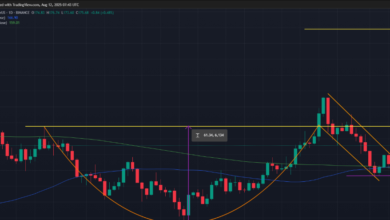Pandora Papers: Unmasking the Global Web of Financial Secrecy

The Pandora Papers shook the world when published in October 2021, revealing the secret data of global wealthy, politicians, and billionaires saving their income in offshore accounts. This huge leakage bigger than the legendary Panama Paper disclosures exposed the intricate web of shell businesses and tax havens in which assets of many trillions of dollars were hidden. The cases of the Pandora Papers as reported by the International Consortium of Investigative Journalists (ICIJ) uncovered more than 11.9 million secret documents of offshore service providers, which underlines the advantage of the financial system to allow secrecy, corruption and inequality. These disclosures revitalized the focus on the PEP checks, transparency, and the necessity to increase the financial control to avoid hiding ill-gotten wealth.
What Were the Pandora Papers?
The leaks of the Pandora Papers included approximately 2.94 terabytes of information of 14 offshore companies involving the secret transactions of over 330 politicians and government officials in 90 nations which included the presidents, prime ministers, and royalty. In contrast to older scandals, like the Panama Paper (2016), the Pandora Papers gave a wider perspective on the utilization of tax havens by the global elite in the British Virgin Islands, Seychelles and Monaco. Some of the people who were named included influential people in Russia, Pakistan, Jordan, and Kenya – that is why it turned out to be one of the widest investigations in the history of the world.
These leaks pointed out that although the use of offshore accounts is not necessarily illegal it is usually used as a layer to cover tax evasion, money laundering and corruption. The Tax Justice Network estimates that over 427 billion tax is wasted on tax abuse in the world, which indicates the endemic nature of offshore secrecy.
Offshore Leaks and International Financial Secrecy
Offshore leaks are defined to mean disclosures such as the Pandora and Panama papers that unveil the secret movement of money through the offshore jurisdictions. These leaks have shown how these opaque systems enable politically exposed persons (PEPs), criminals, and corporations to conceal their assets without anyone noticing. In the context of financial institutions, these revelations enable one to explain why proper due diligence and PEP checks processes are valuable in identifying clients who might have connections with corruption and/or financial crime.
In the framework of anti-money laundering (AML) and PEP checks assistance to determine people, who appear to be on the rise of risk of bribery, embezzlement, or power abuse due to their high-profile positions. In the absence of such checks, the illegal transfer of funds may go scot-free at the expense of transparency in the world.
Important Pandora Papers Lessons
The Pandora Papers and other past leakages have transformed the concept of risk, compliance, and ethical duties of managing wealth by regulators and financial institutions. The exposures reflected the importance of having transparency and accountability on the financial front.
Key takeaways include:
- Enhancing PEP screening: Financial institutions should enhance PEP check mechanisms to detect and screen risky customers.
- Improved due diligence: Regulators make deeper inspection of the source of wealth as well as the source of funds of clients to ensure that offshore structures are not abused.
- International collaboration: The Pandora and Panama Paper scandals expose the necessity of cross-border data exchange can help fight tax evasion and corruption.
- Transparency reform: Since then, many countries have advocated that they should come up with public beneficial ownership registries so that everyone can know who the real owner of offshore companies is.
- Ethical responsibility: On top of the law, the leaks raised the moral issue of hiding wealth in the face of inequality in the world.
The Pandora Papers Continued to Shake the World
Their impact on the world of politics and finance is still present years after the Pandora Papers leaks. Various nations initiated investigations on government officials and business magnates that were involved in the reports. The leaks led to the legislative changes in such countries as the United States, the United Kingdom, and the European Union aimed at beneficial ownership disclosure and more rigorous reporting standards.
PEP check automation tools have also been incorporated in the compliance systems of financial institutions, which guarantees ongoing monitoring of client databases with the global watchlists. Also, the media events that reported the leaks rekindled the discussion on the issue of wealth inequality, transparency and accountability among the elite.
The Pandora Papers were also compared to the Panama Papers, the 2016 leak that revealed the offshore business of Mossack Fonseca that demonstrated how secrecy continues to thrive even after security scandals. Nevertheless, an improved future of financial transparency will come through an increase in technology and global cooperation.
The Importance of PEP Checks in a Post-Pandora World
The Pandora Papers and offshore leaks, among others, show that compliance and due diligence is something that must be proactive. PEP checks present the initial barrier to illegal financial activity as the financial systems continue to become more interconnected. They make sure that the institutions identify possible red flags prior to the execution of transactions minimizing the chances of reputational loss and sanctions by the agencies.
Financial Action Task Force (FATF) (2024) claimed that a lack of proper due diligence is one of the leading causes of AML compliance failures across the globe. This highlights the necessity to have efficient PEP check mechanisms in every financial institution, whether banks or fintech companies.
Conclusion
The Pandora Papers are an excellent reminder that confidentiality is a source of inequality, and it is transparency that builds trust. Since the offshore leaks, Panama Paper, all the revelations bring us to the revelation of how the secret wealth corrupts economies and governments. To regulators, journalists, and financial institutions, the message is simple: constant monitoring, international collaboration and elaborate PEP check systems are essential in ensuring that the future financial scandals can be avoided. Finally, the Pandora papers put the world in a situation of deciding between secrecy and accountability, and it is a decision that will define the future of global finance.



